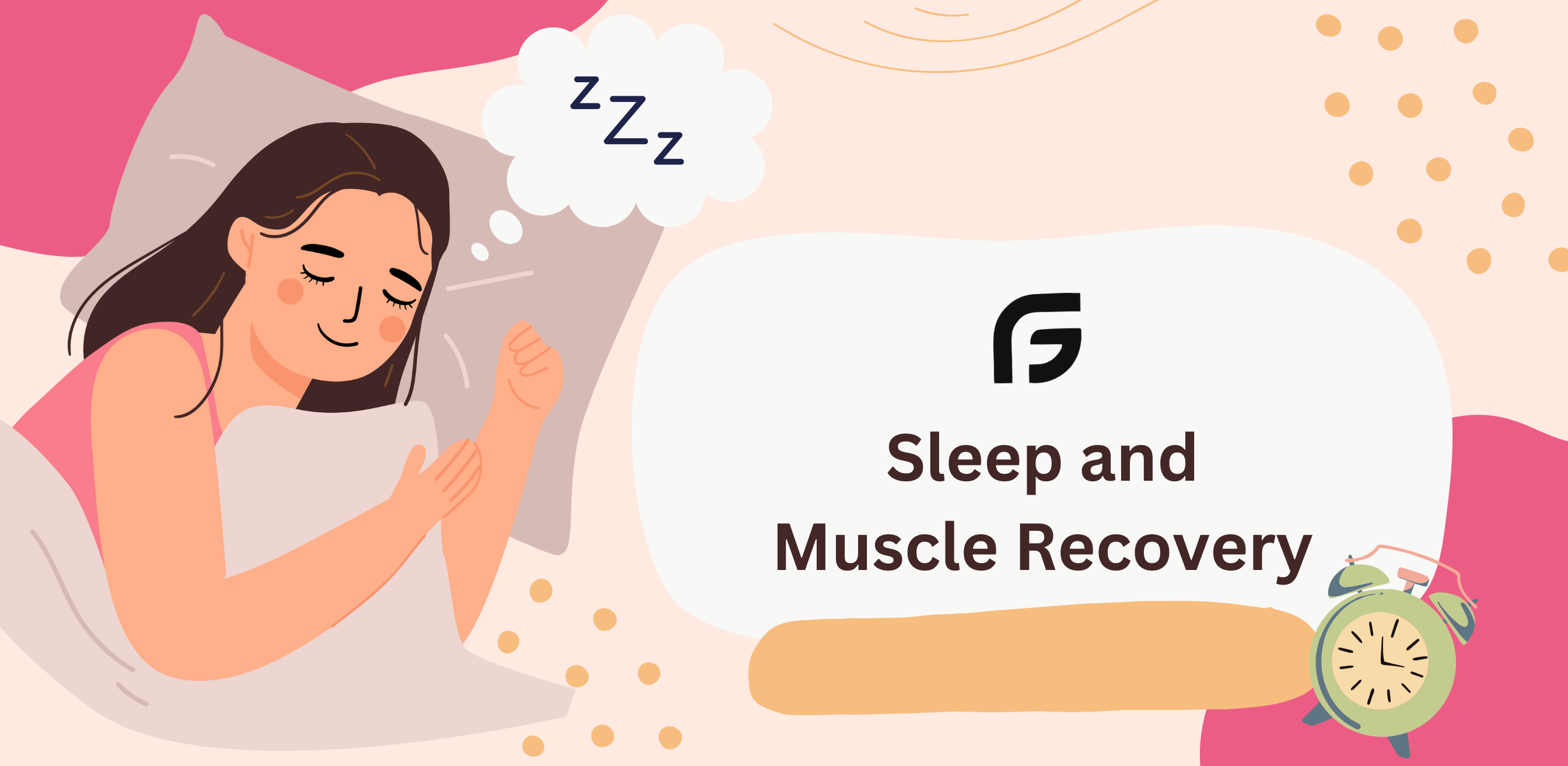Introduction
Sleep and muscle recovery are fundamental components of any fitness journey. Whether you’re a professional athlete or someone trying to stay active, quality sleep plays a pivotal role in repairing muscle tissue, enhancing athletic performance, and preventing injuries. Sleep isn’t just about resting—it’s when your body actively works to recover and prepare for the next challenge.
This blog delves into the science behind sleep and muscle recovery and provides actionable tips to maximize your fitness potential.
1. How Sleep Fuels Muscle Recovery
Sleep is when your body undergoes essential processes to repair and strengthen muscles after physical activity.
Key Recovery Processes During Sleep:
- Protein Synthesis: Sleep enables the rebuilding of damaged muscle fibers through protein synthesis.
- Growth Hormone Release: Deep sleep triggers the release of growth hormones, which are vital for muscle repair and recovery.
- Cortisol Regulation: Quality sleep reduces cortisol levels, a hormone that can interfere with muscle recovery if elevated.
Pro Tip: To optimize sleep and muscle recovery, aim for 7–9 hours of uninterrupted rest each night.
Learn about how recovery impacts fitness progress.
2. The Science of Sleep Stages and Recovery
Understanding sleep stages is crucial to appreciating how they contribute to muscle recovery.
Sleep Stages Explained:
- Light Sleep (Stages 1 & 2): Prepares your body for deeper sleep by slowing heart rate and relaxing muscles.
- Deep Sleep (Stages 3 & 4): Critical for physical recovery as this is when tissue repair and growth occur.
- REM Sleep: Supports mental recovery by consolidating skills and processing training sessions.
Balanced sleep cycles are essential for achieving optimal sleep and muscle recovery.
Discover more about sleep stages and recovery.
3. How Sleep Enhances Athletic Performance
Adequate sleep not only accelerates recovery but also directly impacts your performance during workouts.
Performance Benefits of Sleep:
- Improved Strength and Endurance: During sleep, glycogen stores are replenished, ensuring your muscles have energy for intense workouts.
- Faster Reflexes: Proper sleep sharpens focus and reaction times, vital for high-intensity activities.
- Reduced Risk of Injuries: Rested muscles are more resilient and less prone to strain or overuse injuries.
Explore ways to prevent workout injuries.
4. Nutrition’s Role in Sleep and Muscle Recovery
Your diet can significantly influence the quality of your sleep and recovery.
Sleep-Supporting Nutrients:
- Magnesium: Found in leafy greens and nuts, magnesium promotes relaxation and deeper sleep.
- Tryptophan: Present in turkey, dairy, and bananas, this amino acid supports melatonin production for better sleep.
- Complex Carbs: Foods like whole grains stabilize blood sugar levels and prevent sleep disruptions.
Pro Tip: Consuming a light snack 1–2 hours before bed can enhance both sleep quality and muscle recovery.
Learn more about nutrition for better sleep.
5. Common Barriers to Sleep and Recovery
Despite its importance, several factors can disrupt the connection between sleep and muscle recovery:
Barriers to Avoid:
- Screen Time: Blue light from devices suppresses melatonin, making it harder to fall asleep.
- Irregular Sleep Patterns: Inconsistent bedtimes can disrupt your circadian rhythm, reducing sleep efficiency.
- Overtraining: Skipping rest days delays recovery and increases fatigue.
- Late-Night Stimulants: Avoid caffeine and heavy meals close to bedtime.
Learn about balanced workout routines.
6. The Power of Naps for Recovery
Short naps can supplement nighttime sleep and provide additional recovery benefits.
Why Naps Are Effective:
- Boost energy and alertness.
- Promote muscle repair after high-intensity workouts.
- Reduce cortisol levels and fatigue.
Pro Tip: Keep naps between 20–30 minutes to avoid grogginess and improve sleep and muscle recovery.
7. Tracking Sleep to Improve Recovery
Sleep-tracking tools provide insights into your sleep patterns, helping you optimize recovery.
Recommended Tools:
- Whoop Strap: Tracks heart rate variability (HRV) to measure recovery.
- Fitbit: Monitors sleep cycles and provides a comprehensive sleep score.
- Oura Ring: Analyzes sleep quality and readiness for physical activity.
Check out top sleep tracking devices.
8. How to Optimize Your Sleep Environment
Creating the ideal sleep environment is key to achieving quality sleep and muscle recovery.
Tips for Better Sleep:
- Dark Room: Use blackout curtains or an eye mask.
- Comfortable Bedding: Invest in a supportive mattress and breathable sheets.
- Cool Temperature: Maintain a room temperature of around 65°F (18°C).
- Quiet Atmosphere: Use white noise machines or earplugs to block disturbances.
Pro Tip: Eliminate electronic distractions from your bedroom for a peaceful sleep environment.
Conclusion
Optimizing sleep and muscle recovery is essential for anyone looking to improve their fitness performance. Sleep isn’t just rest; it’s an active period where your body rebuilds and prepares for the next challenge. By understanding the importance of sleep, addressing common barriers, and incorporating actionable strategies, you can elevate your recovery and fitness results.
Start prioritizing your sleep today and explore more recovery tips at GrowFit Blogs.
FAQs
1. How does sleep help with muscle recovery?
Sleep triggers protein synthesis, growth hormone release, and cortisol regulation, all essential for muscle repair.
2. How much sleep is ideal for muscle recovery?
Most adults need 7–9 hours of sleep, while athletes may require up to 10 hours for optimal recovery.
3. Can poor sleep affect workout results?
Yes, inadequate sleep slows recovery, reduces performance, and increases the risk of injuries.
4. What should I eat before bed to improve recovery?
Magnesium-rich foods, tryptophan sources, and complex carbs are great for promoting better sleep.
5. Are naps beneficial for muscle recovery?
Yes, short naps can enhance recovery by reducing fatigue and promoting muscle repair.

